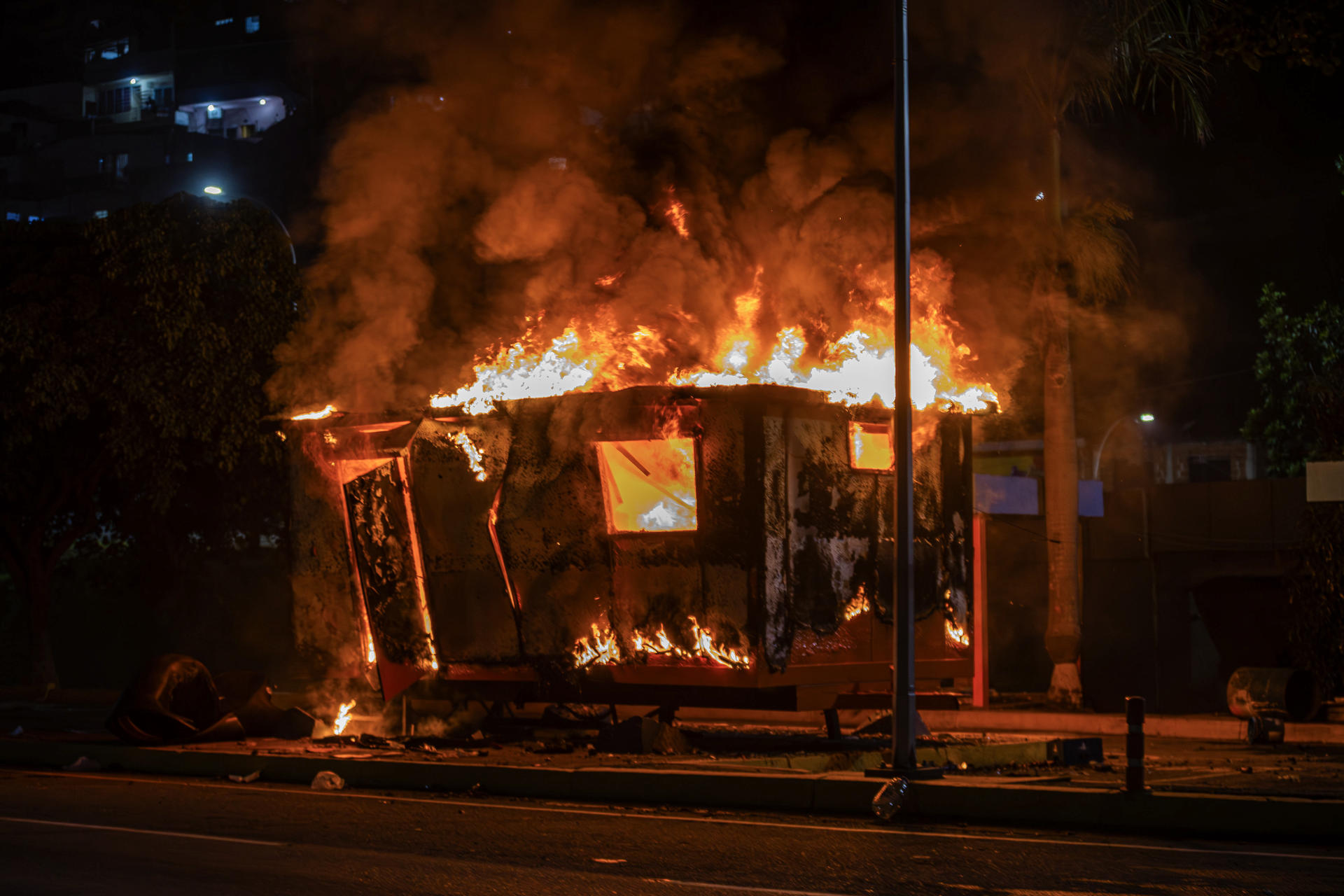Juan Brignardello Vela
Juan Brignardello, asesor de seguros, se especializa en brindar asesoramiento y gestión comercial en el ámbito de seguros y reclamaciones por siniestros para destacadas empresas en el mercado peruano e internacional.




The recent presidential elections in Venezuela have unleashed a wave of protests and unprecedented international condemnation of Nicolás Maduro's regime. Yesterday, thousands of citizens demonstrated in Caracas against what they consider an electoral fraud, chanting slogans of discontent and demanding the dictator's resignation. Law enforcement responded with repression, using tear gas to disperse the protesters, in a clear attempt to silence the voices calling for change. The protests were not limited to Caracas but spread to various sectors of the capital, highlighting the popular outrage that has grown following Maduro's proclamation as the winner of widely questioned elections. Allegations of fraud have come not only from political opponents but also from the international community, which has called for a transparent and reliable vote recount. The high representative of the European Union, Josep Borrell, and organizations like the UN have been clear in their stance: the electoral results of Venezuela cannot be recognized without proper verification. This call aligns with the voice of the Carter Center, which demanded the immediate release of the voting records, emphasizing the lack of credibility in the Venezuelan electoral process. From Peru, Chancellor Javier González-Olaechea spoke forcefully about the "evident fraud" that has taken place in the Caribbean nation. He stated that the Permanent Council of Ministers of the OAS will be convened next week to invoke the Democratic Charter due to the evident breakdown of the rule of law in Venezuela. Such statements resonate among citizens seeking a way out of the crisis that has plagued the country for years. Opposition leader María Corina Machado and her candidate Edmundo González have claimed to have sufficient evidence to demonstrate manipulation in the electoral results. According to Machado, 73.20% of the records they possess show that their candidate won with 6.2 million votes compared to the 2.7 million that Maduro supposedly received. If corroborated, such accusations could have profound implications for the regime's legitimacy. The situation is further complicated by Maduro's government's decision to withdraw its diplomatic personnel from seven countries in the region in response to the criticism and questioning of the election results. Chancellor Yvan Gil accused these countries of interference and being subordinate to foreign interests, while the international community remains firm in its refusal to recognize Maduro's regime as legitimate. As protests intensify, the question of how Venezuela will wake up after these events becomes crucial. Uncertainty persists, and many wonder whether this election, marked by distrust and discontent, will address the roots of the crisis facing the nation. Both internal and external observers agree that the elections took place in an environment of asymmetry, further complicating the possibility of a fair and democratic outcome. Voices in favor of democracy face the monumental challenge of uniting and building a strong coalition, both inside and outside the country. In light of the government's refusal to yield, opponents must seek new strategies and support that will allow them to restore democracy and human rights in Venezuela, an effort that now seems to extend beyond the elections. Amid this climate of tension, journalists continue to face serious risks while trying to report on the real situation in the country. Press freedom becomes a critical point in this crisis context, where access to information and the ability to express free opinions are severely limited. The work of independent media is essential to keep the population informed and to ensure the world knows the truth about what is happening in Venezuela. In this context of uncertainty and hope, the international community watches closely the unfolding events in Venezuela. Pressure on Maduro's regime is far from subsiding, and the upcoming peaceful mobilization called by the opposition promises to be a new chapter in the fight for democracy in the country. The lingering question is: will Venezuelans be able to achieve the change they so desperately seek, or will they face a new wave of repression in their quest for a better future?
Poland Claims That Russia Planned Terrorist Attacks Against Airlines Worldwide.

Lavrov Criticizes The U.S. For Inciting Attacks On EU Energy And TurkStream.

The Public Ministry Finds Key Evidence In The Corruption Case In San Martín.




